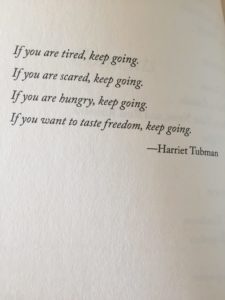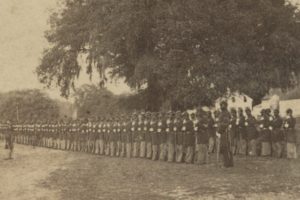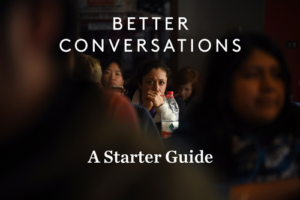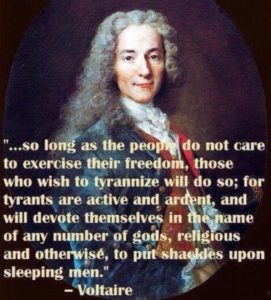Rilke & Nepo
November 4, 2017Once for each thing. Just once; no more.
And we too, just once. And never again.
But to have been this once, completely,
even if only once: to have been
at one with the earth,
seems beyond undoing.
Rainer Maria Rilke
✿
I enter every meeting with another being saying to myself, “If I only have this time on Earth with this person, if I may never see them again, when is it I want or need to ask, to know? What is it I want to say?”
[…]
The truth is that each living spirit we encounter is a depth to gently swim in, a miracle that can quench our thirst. Honoring others in this way has opened me to wisdoms that would otherwise run silent beneath my time on Earth.
Mark Nepo
Journalism: Exposing Privacy
Incredibly well reported and researched. And deeply moving.
Radiolab
First aired on 9.25.17
‘Now What Am I Known For?’ Trying to Find Oliver Sipple’s Legacy
by Latin Nasser
Our latest episode tells the story of Oliver Sipple, a Vietnam vet who went for a walk one day, and ended up saving then-President Gerald Ford from an assassin’s bullet. A day later, renowned gossip columnist Herb Caen – in conjunction with the activist Harvey Milk – outed Sipple as gay. Sipple hadn’t told his family. The revelation made national news and he eventually sued several newspapers for invading his privacy.
[…]
Trying to capture something so evanescent as a reaction to a headline forty years after the fact is no small challenge, but we started calling up some organizations we thought might be able to help. Turns out, we didn’t have much luck. But in all those calls, we did talk to two people who shared what Sipple and his story meant to them. And – although we had to cut them from our story for time – we still wanted to share snippets from those conversation.
http://www.radiolab.org/story/sipple-legacy/
More on reporting privacy with a focus on the digital age and the ease of exposing privacy with massive and often debilitating effects.
What is ‘doxing’?
ProPublica
11.4.17
Remember Gamergate?
Or when the identity of that dentist who killed Cecil the Lion was posted?
Or that man who was wrongly identified as the Boston Marathon bomber?
These were all examples of how making someone’s personal, and sometimes private, information public on the internet led to intense harassment.
Today, each of the cases could easily be termed a form of doxxing—shorset for “dropping documents.” In the last few years, doxxing has increasingly been used as an online weapon to attack people. People’s “documents”—records of their addresses, relatives, finances—get posted online with the implicit or explicit invitation for others to shame or hector them.
But while doxxing may seem both creepy and dangerous, there is no single federal law against the practice. Such behavior has to be part of a wider campaign of harassment or stalking for it to be against the law.
This week I wrote about “doxxing” among the more extreme elements of the country’s political left and right, a world of zealotry and paranoia and anger and worry. Over the course of my reporting, the subject of my article got doxxed herself.
It was all fascinating and disturbing, and I think leaves people, myself included, with a lot to think about concerning doxxing—its effectiveness and appropriateness both. Reporters, after all, have been doing a form of doxxing for decades.
But to hope of thinking clearly about doxxing, it always helps to better understand it and its practitioners.
So, how do doxxers dox? They use public records, like property records, tax documents, voter registration databases; they scour social media, real estate websites, and even do real-life surveillance to gather information. Then, they publish the information online.
For some, doxxing is morally troubling. Law professor Danielle Citron is one. “It provides a permission structure to go outside the law and punish each other,” she says. “It’s like shaming in cyber-mobs.”
Then, there is the matter of doxxing the wrong person.
Here’s an example: After the infamous “Unite the Right” protest in Charlottesville, an attendee wearing an “Arkansas engineering” shirt was identified as Kyle Quinn, a professor at the University of Arkansas. Except Kyle Quinn wasn’t in Charlottesville. That didn’t stop the internet, and so when “Kyle Quinn” was doxxed as one of those torch-bearing protesters in Charlottesville, Quinn spent a weekend in hiding due to the amount of online abuse he subsequently received. The real protester, a former engineering student named Andrew M. Dodson, later apologized.
In some cases, people doxxed after taking part in white supremacist marches have been arrested, lost their jobs, or allegedly been disowned by their families.
Other experts question whether doxxing white supremacists is a useful tactic. “Is this an effective means of challenging racist views?” ask Ajay Sandhu and Daniel Marciniak, researchers at the University of Essex in the United Kingdom. They argue that doxxing simply isolates people, forcing them into smaller parts of the internet. “You don’t really challenge them, you allow them to exist in those isolated spaces,” Sandhu says.
How do you protect yourself from doxxing? The short answer is: You probably can’t fully. But we have a few tips that will help make the information you want kept private more secure.
—Decca Muldowney
5 Books to Remedy Civil War Ignorance
The Atlantic
by, Ta-Nehisi Coates
On Monday, (was this only Monday?) the retired four-star general and White House Chief of Staff John Kelly asserted that “the lack of an ability to compromise led to the Civil War.” This was an incredibly stupid thing to say. Worse, it built on a long tradition of endorsing stupidity in hopes of making Americans stupid about their own history. Stupid enjoys an unfortunate place in the highest ranks of American government these days. And while one cannot immediately affect this fact, one can choose to not hear stupid things and quietly nod along.
[…]
1) Battle Cry Of Freedom: Arguably among the greatest single-volume histories in all of American historiography, James McPherson’s synthesis of the Civil War is a stunning achievement. Brisk in pace. A big-ass book that reads like a much slimmer one. The first few hundred pages offer a catalogue of evidence, making it clear not just that the white South went to war for the right to own people, but that it warred for the right to expand the right to own people. Read this book. You will immediately be less stupid than some of the most powerful people in the West Wing.
2) Grant: Another classic in the Ron Chernow oeuvre. Again, eminently readable but thick with import. It does not shy away from Grant’s personal flaws, but shows him to be a man constantly struggling to live up to his own standard of personal and moral courage. It corrects nearly a half-century of stupidity inflicted upon America by the Dunning school of historians, which preferred a portrait of Grant as a bumbling, corrupt butcher of men. Finally, it reframes the Civil War away from the overrated Virginia campaigns and shows us that when the West was won, so was the war. Grant hits like a Mack truck of knowledge. Stupid doesn’t stand a chance.
3) Reading the Man: A Portrait of Robert E. Lee: Elizabeth Pryor’s biography of Lee, through Lee’s own words, helps part with a lot of stupid out there about Lee—chiefly that he was, somehow, “anti-slavery.” It dispenses with the boatload of stupid out there which hails the military genius of Lee while ignoring the world that all of that genius was actually trying to build.
4.) Out of the House of Bondage: A slim volume that dispenses with the notion that there was a such thing as “good,” “domestic,” or “matronly” slavery. The historian Thavolia Glymph focuses on the relationships between black enslaved women and the white women who took them as property. She picks apart the stupid idea that white mistresses were somehow less violent and less exploitative than their male peers. Glymph has no need of Scarlett O’Haras. “Used the rod” is the quote that still sticks with me. An important point here—stupid ideas about ladyhood and the soft feminine hand meant nothing when measured against the fact of a slave society. Slavery was the monster that made monsters of its masters. Compromising with it was morally bankrupt—and stupid.
5.) The Life and Times of Frederick Douglass: The final of three autobiographies written by the famed abolitionist, and my personal favorite. Epic and sweeping in scope. The chapter depicting the bounty of food on which the enslavers feasted while the enslaved nearly starved is just devastating.
The Atlantic
Jon Batiste Reinterprets ‘Battle Hymn of the Republic’ for The Atlantic
Julia Ward Howe first published her iconic poem in The Atlantic in 1862. The song quickly became an anthem of the Civil War and a touchstone of the American Idea. In that spirit, The Atlantic asked renowned jazz musician Jon Batiste to create a new arrangement of the song for the magazine’s first podcast, Radio Atlantic.
Civil Conversations
‘Does conversation really matter when our disagreements are so stark and important?’
Better Conversations: A Starter Guide
It seems we are more divided than ever before — unable to speak across the differences we must engage to create the world we want for ourselves and others. We offer this guide as a resource for creating new spaces for listening, conversation, and engagement. We’ve created it as producers, but more as citizens, out of what we’ve learned in over a decade of conversation on On Being.
Dialogue on:
- Words That Matter
- Generous Listening
- Adventurous Civility
- Humility
- Patience
- Hospitality
And, ask three questions:
- What are you feeling?
- What is the country that you long for?
- As your bravest self, what do you do now?
This guide is intended to help ground and animate a gathering of friends or strangers in a conversation that might take place over weeks or months. Adapt this guide for your group and your intentions, choosing a focus and readings you find meaningful and relevant.
Full link:
‘We won’t be ignored anymore.’
Ex-Felons Voting for the First Time Could Shake Virginia Governor’s Race
A massive effort is underway to get formerly incarcerated people to the polls.
A massive effort is underway to mobilize the potential new voters. Ex-offenders have hit the streets to register others like them to vote, often teaming up with community groups. “There’s a lot of work being done to make sure they’re planning to be a significant part of this election,” says Price, who also directs a voter engagement project with the nonprofit New Virginia Majority that has targeted ex-offenders.
In Richmond, few people have registered as many felons to vote as Muhammad As-saddique Abdul-Rahman. The 54-year-old was himself most recently released from prison in 2002—he went in for the first time as a teenager on felony robbery charges. After getting out, he struggled for years with homelessness and alcoholism. But things changed after he got sober, and again the day McAuliffe announced his rights were restored.
That night he went online to register to vote, and the next day he set out to register others. “I went to Monroe Park, where they have breakfast for the homeless and I knew there were a lot of ex-offenders,” he says. “I went to drug houses, to the neighborhoods I grew up in, the neighborhoods I had lived in. I went to AA meetings, different churches, soup kitchens.” Within a few weeks, he says he had registered some 500 people. Hoping to turn his sudden calling into a career, he searched online for voter registration jobs and stumbled upon a phone number for New Virginia Majority; the group hired him as a full-time staffer. Abdul-Rahman estimates he has now personally registered about 2,000 people.
[full article: http://www.motherjones.com/politics/2017/11/ex-felons-voting-for-the-first-time-could-shake-virginias-governors-race/#]





